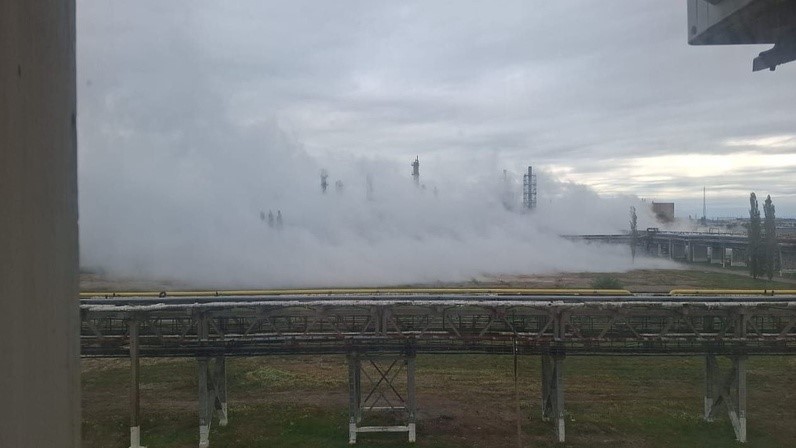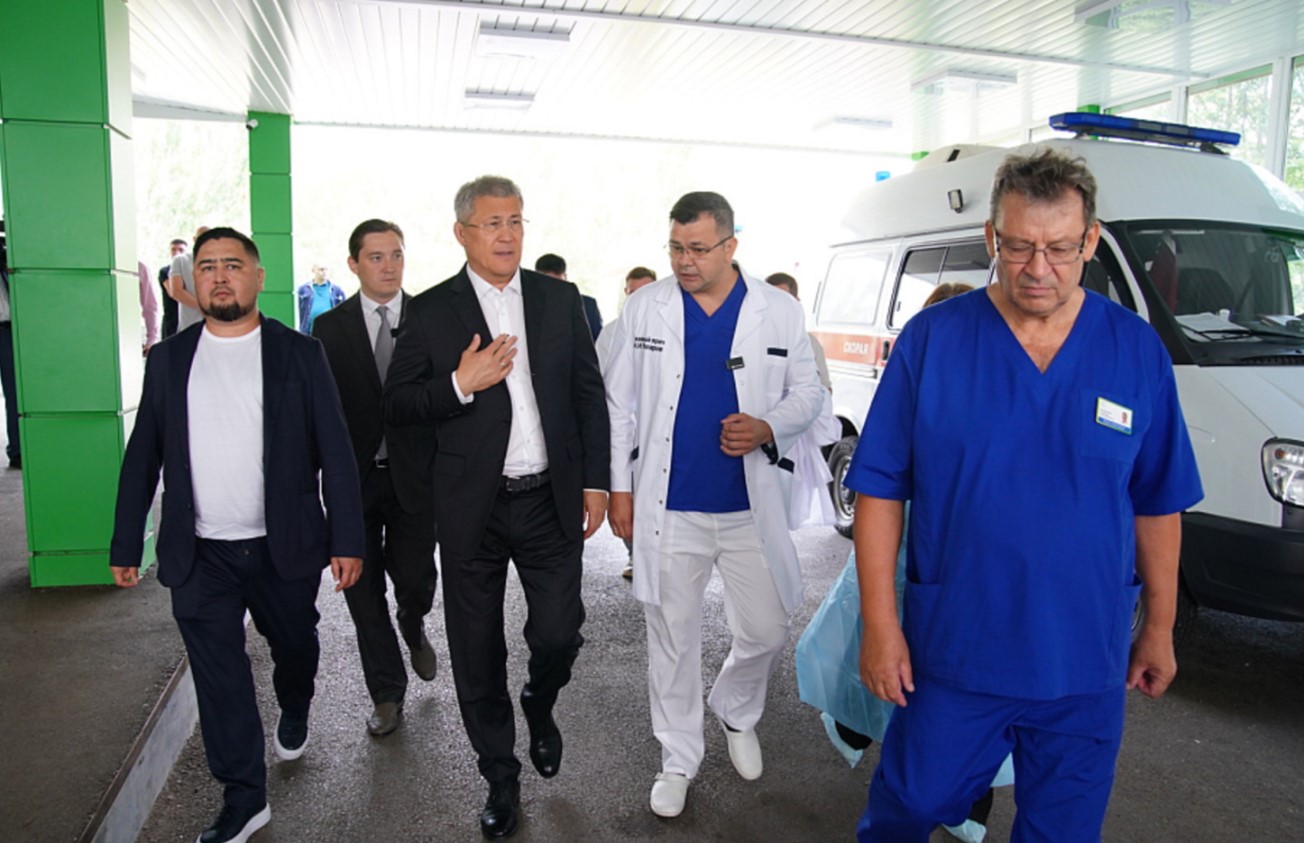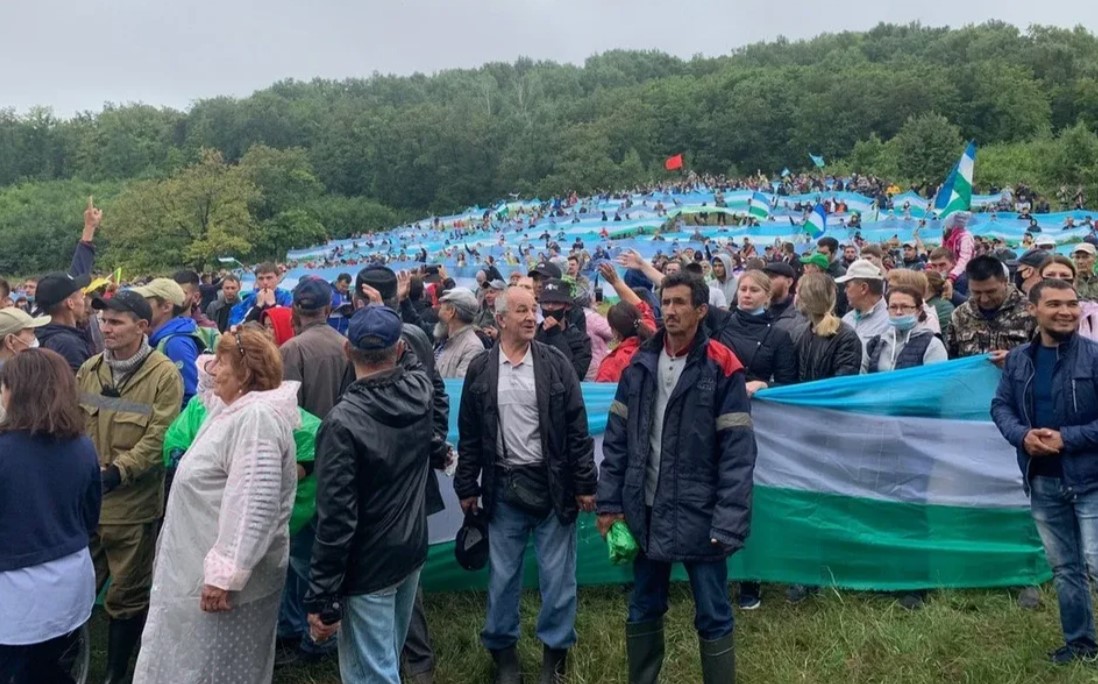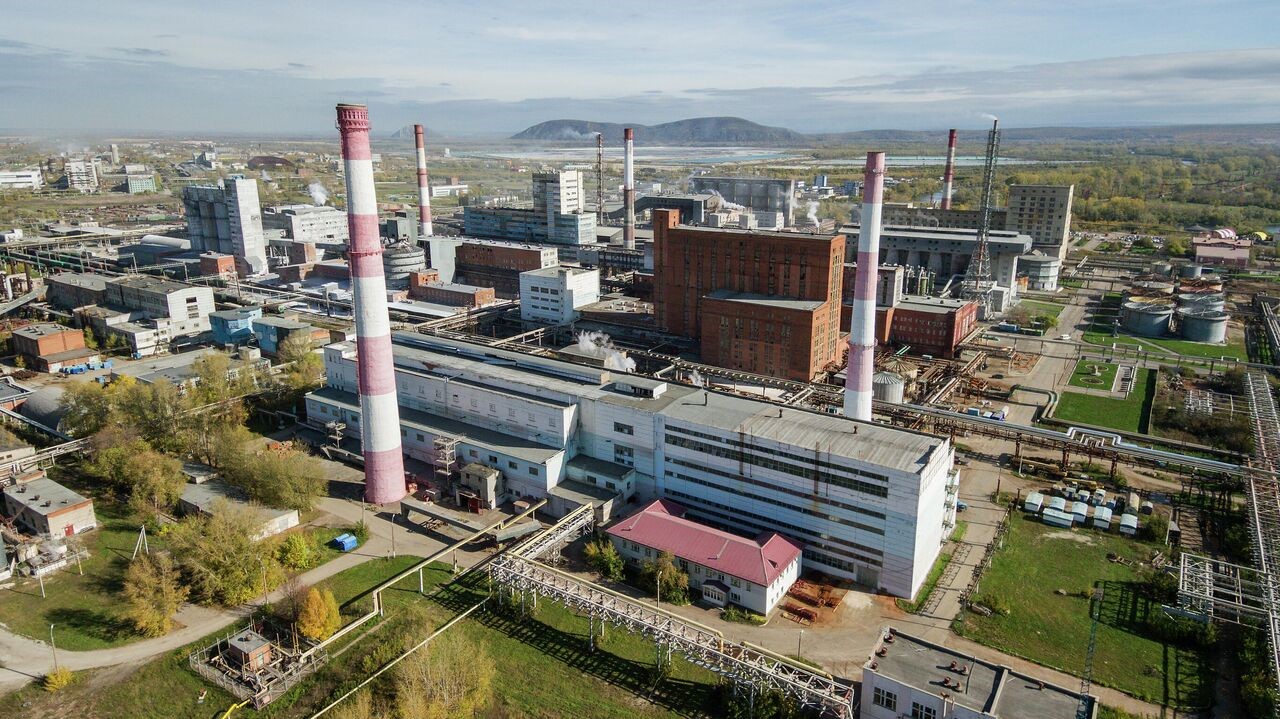Khabirov could not "digest" BSK, "exchanged" it with the Rotenbergs, but this did not save the company from the largest man-made disaster in its history.
According to a correspondent of The Moscow Post, a few days ago, a powerful explosion of a gas-air mixture occurred at the Caustic production site of the Bashkir Soda Company (BSK) in Sterlitamak, which became the largest emergency in the company's recent history. As a result of the incident, one person was killed, 31 were hospitalized, and 16 ended up in intensive care. According to preliminary estimates, the cause of the incident could be the depressurization of the pipeline weld in preparation for repair.
As a result, a criminal case was opened on violation of industrial safety requirements for hazardous production facilities. But it is surprising that the first thing the security forces did was not go to the offices of the BSK leadership, most of which are close to the administration of Bashkiria Governor Radiy Khabirov, but to a completely different place.
Find the "switchman"
Law enforcement officers conducted a search in Ufa LLC Regionpromtechnologiya, a contractor who was engaged in technical control at the Caustic site of the Bashkir Soda Company (BSK) in Sterlitamak. Regionpromtechnologiya worked for BSK under a subcontract, and the last inspection of the facility with their participation was scheduled for June 2025, but the company was no longer involved in it. It is still unclear who exactly performed the welding of the pipeline, although BSK previously stated that the installation at Caustic was developed by its own design department.
We would not be surprised if no one carried out the above-mentioned check, and the previous ones could only be of a formal nature.

View of the BSK plant after the emergency. The entire enterprise was enveloped in acrid smoke, which can be dangerous for people. Photo: https://avatars.dzeninfra.ru/get-ynews/271828/386f4de013e465ac722ee34db2875d1c/796x448
The owners of Regionpromtechnologiya have changed many times. Until August 2022, the founder was Viktor Ermakov, associated with the real estate business, after which the company was registered to Lyudmila Ermakova, increasing the authorized capital from 10 thousand to 100 thousand rubles. In October 2022, control passed to Anatoly Duminov, who previously participated in the consulting business.
Duminov doesn't shine much in the "public". But Director Viktor Nikolsky is a member of the Committee on Industrial Safety at the CCI of the Russian Federation, i.e. he is close to officials from the industry community. It is noteworthy that the company's website is not functioning for unknown reasons, although it has recently regularly won government contracts, which have already accumulated in excess of 28 million rubles.

Khabirov visited the injured in the hospital, but why was the security of the enterprise not initially ensured? Photo: https://sterlibashevskierodniki.ru/news/novosti/2025-08-09/radiy-habirov-navestil-v-bolnitse-postradavshih-v-rezultate-chp-4344367
Whether there was any fault of the inspectors from Regionpromtechnology or not, the investigation will figure it out. Another interesting thing is that before BSK was nationalized and transferred to Bashkortostan, namely into the caring hands of Governor Radiy Khabirov's managers, the country's largest soda producer had one problem after another. There have been incidents at BSK factories, but I don't recall disasters of this magnitude.
The Rothenbergs are rushing to the rescue
It is noteworthy that the explosion at Caustica coincided with serious changes in the fate of BSK itself. In June 2025, the government sold 57.43% of the company's shares to Roshim Holding, allegedly close to the Rotenberg brothers' entourage, leaving 11.7% in the trust management of Bashkortostan, which retained a controlling stake of 50.1% for the region. It is possible that the possible entry of people close to the Rothenbergs into the company's capital was initially taken into account during the nationalization of BSK.
In any case, many experts agree that for the head of the region, Radiy Khabirov, BSK remains a problematic asset: in 2020, it was precisely because of the plans to develop Shihan Kushtau that the company found itself in the center of mass protests that almost cost the governor his position.
The authorities agreed on this project with the previous owners of the enterprise, which we will discuss below. Moreover, it was the Khabirov administration that insisted that the company start extracting raw materials at the ancient shikhan of Kushtau, although BSK requested that Mount Toratau, the most suitable chemical composition for soda production, be transferred for these purposes. It was after this scandal that the issue of nationalization of the asset arose.

The mass unsanctioned protests in Kushtau were a real disaster for Khabirov's team. Photo: https://s13.stc.yc.kpcdn.net/share/i/12/11540044/wr-960.webp
In other words, it turns out that Khabirov himself brought problems in many ways, which resulted in mass unauthorized protests by the defenders of Kushtau. But then something very strange happened: after that story, "suddenly" it turned out that BSK was not at all clear how it turned out to be outside the ownership of the region. And the process of nationalization of the structure began.
Who was behind BSK?
In 2020, the Russian Prosecutor General's Office initiated an audit of transactions, as a result of which the state lost control over BSK. According to the results of the audit, it was found that a significant part of the company's shares were transferred in favor of offshore structures, which caused concern among the federal authorities. And it seems to have happened right under the noses of the leaders of Bashkortostan, at least under the former head of the region, Rustem Khamitov.
Until 2020, control of the Bashkir Soda Company belonged to structures that could be associated with Ufa businessman Sergei Chernikov and ex-senator of the Federation Council from Bashkiria Irek Yalalov. Formally, the key owner was Bashkir Soda LLP, an offshore company registered in London, through which, according to media reports, Russian beneficiaries operated.
At one time, a large share of BSK was also held by the Region Group and structures affiliated with Trust Bank. In 2013, these investors bought a controlling stake from the state as part of the privatization carried out with the assistance of the then leadership of the republic. Chernikov, who had a reputation as the "gray cardinal" of Bashkir business, at one time made capital in the trade and processing of chemical raw materials, and later through partnership schemes (and with the possible assistance of officials) entered the strategic assets of the region, including BSK.
Irek Yalalov was the mayor of Ufa before the Federation Council and was in the orbit of the former team of the head of Bashkiria Rustem Khamitov. His interest in BSK was linked to his desire to gain a foothold in the industrial sector and secure long-term financial flows. It is easy to assume that it was Rustem Khamitov's team that could have contributed to BSK entering the orbit of companies that could be associated with Yalalov.
By the time of 2020, BSK was a vertically integrated giant with revenues of more than 40 billion rubles per year, controlling limestone mining and soda production. This made the company not only a profitable asset, but also an important element of economic and political power in the region. That is why the history of its nationalization has become a high-profile event and has caused controversy about the legality of the actions of the republican authorities.
After nationalization, there are only problems
However, four years later, it became clear that BSK had not flourished under the leadership of Khabirov's team, to put it mildly. The company increased its debt burden, which amounted to about 20 billion rubles with a net worth of 29 billion rubles, i.e. more than two thirds. Total liabilities increased by 31% over the year, short-term liabilities increased by 32% and amounted to more than 11 billion rubles.
In addition, a series of problems began at the enterprise, culminating in the recent explosion at Caustica. Inspections of supervisory authorities that regularly recorded violations at BSK plants. Rostechnadzor, for example, in 2021 found worn-out equipment in production halls, non-compliance with industrial safety requirements and problems with control systems - over 100 violations in total.
The head of the TFR, Alexander Bastrykin, became interested in how the legislation is observed at the enterprise. The reason was numerous complaints from residents of Bashkiria about air pollution: due to the fact that the company uses unmodernized equipment, constant emissions into the atmosphere occur, and locals feel the acrid smell of chemicals. Just before that, an accident occurred at the plant, as a result of which a man and a woman, employees of the enterprise, received serious burns.
In addition, over the past four years, a series of lawsuits against BSK have accumulated in the courts, both from suppliers and from government agencies. Some of them relate to debts for supplied raw materials, while others relate to fines for environmental violations. All this combined to damage the company's reputation, and it was increasingly being said in the public space that the company, which was once one of Bashkiria's largest taxpayers, was in a state of stagnation and protracted crisis.
As a result of these events and the inept actions of Khabirov's management, BSK was excluded from the list of strategic enterprises in the country, which provided serious advantages in obtaining government support. Was this what the Khabirov administration wanted?

The Bashkirian government turned out to be an ineffective owner of BSK. Photo: https://cdnn21.img.ria.ru/images/07e4/08/1c/1576446124_0:282:2731:1818_1280x0_80_0_0_5aaec4053876ed1086c110e7d2826d01.jpg
And so, in June 2025, BSK acquired a new shareholder, Roshim. We hesitate to ask - has the largest soda producer been deliberately "harassed" all these years in order to "drag out" a strategic investor? Or maybe the Bashkirian government was convinced by the Kremlin to sell the package to Roschim, seeing that the new republican management simply could not cope with managing such a colossus? In this case, the recent state of emergency only convinced them that most of the BSK should be transferred to private hands – this time, legally.
Whatever the answer, it will be negative for Radiy Khabirov's team. The Presidential Administration obviously won't pat him on the head for this. And something tells me that if another large Bashkir enterprise is nationalized, control over it will remain in the hands of the Federal Property Management Agency, and not at all republican structures.


.jpg?v1755182218)
.jpg?v1755182218)